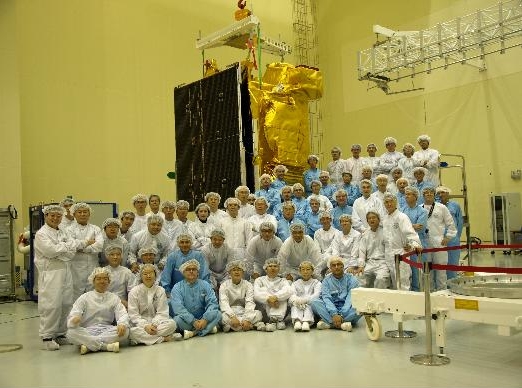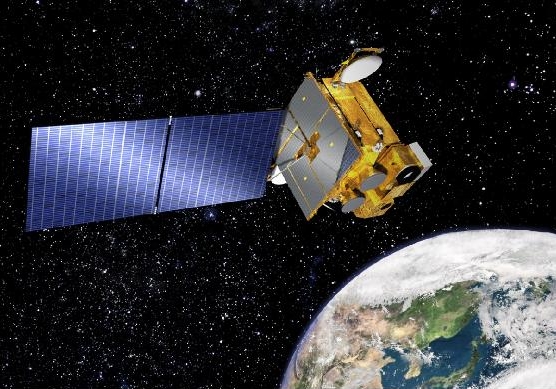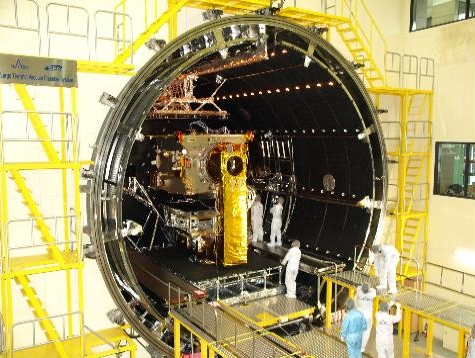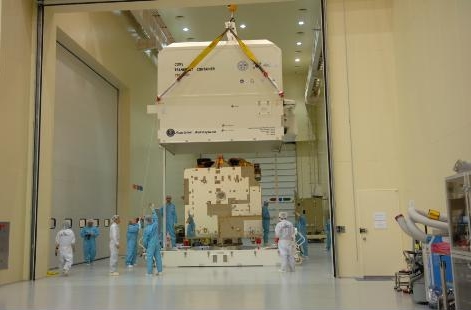한국항공우주연구원
Mobile GnbNews Release
COMS Transported out of Country
- Department Administrator
- Registration Date 2009-11-25
- Hits 20373
The Korea Aerospace Research Institute (hereinafter referred to as “KARI”" headed by President Lee Joo-jin) announced that a COMS, or communication, ocean, meteorological satellite, would be transported to Toulouse, France at 3:00 a.m. on November 26.
With the detailed design completed in March 2007, the COMS was assembled in December 2008 and successfully passed functional tests and environmental tests in October 2009.
To assemble and test the COMS, some EADS Astrium personnel were stationed at KARI for the last two years and formed a joint assembly and testing team with KARI researchers, which used assembly and testing facilities within the country to successfully complete assembly, functional tests, launch environment tests and space environment tests.
The COMS will be transported to the premises of Astrium located in Toulouse, France and subjected to the final performance tests (a pressure test of the propulsion system and an RF compliance test) before being launched in the Kourou site in French Guiana in late March, 2010.
The joint development program for the COMS has been spearheaded by KARI since 2003, involving, among others, Astrium, the Electronics and Telecommunications Research Institute, Korea Ocean Research Development Institute and the National Institute of Meteorological Research, and supported by the Ministry of Education, Science and Technology, the Ministry of Land, Transport and Maritime Affairs, the Korea Meteorological Administration and the Korea Communications Commission. The satellite will conduct satellite communications and oceanic and meteorological observation missions in a 36,000-Km geostationary orbit for the next seven years.
Being the seventh country operating its own meteorological satellite would translate into a transition from a situation where meteorological satellite data are received in thirty-minute intervals from Japan into an enhanced meteorological monitoring system allowing for observations in fifteen-minute intervals during ordinary times or in 8-minute intervals in the event of bad weather, which would, in turn, raise the international status of the country from a receiver of meteorological data into a provider.
In addition, oceanic observation is expected to ensure effective management of marine territories including marine resources and the protection of marine environments. The space certification of a communications module developed employing exclusively Korean technologies and the provision of public communications services are also anticipated to help build a set of enabling technologies for next-generation information and communications systems.
The development of geostationary COMS has resulted in the securing of technologies for mid to large geostationary satellites and is expected to trigger further enhancement of the level of domestic satellite technologies.
Specifications of the COMS
○ Operational altitude: 36,000 km
○ Operational orbit: Long. 128.2 ° E.
○ Launch weight: 2,497kg (including payloads)
○ Payloads: Imaging sensors, ocean color monitor sensors, communications relays and antennas

Assembled COMS and research staff involved in the development

Artist’s view of the COMS
.jpg)
COMS as assembled
.jpg)
COMS in an acoustic vibration test

COMS in a space environment test

function fn_linkUrl(val){
window.open('').location.href = val;
}